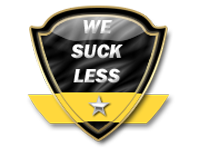While there's no good or bad side of the wall, the key of enjoying life at your employer is to keep the wall as small as possible, with lots of windows, screen doors and temporary siding. When you think about it, both sides have a legitimate (and opposite) reason to keep a wall erected. Sales teams think like this:
- Things are grey, a bit mixed-up and sometimes you need to fly by the seat of your pants.
- Customers come first and without them, nobody has a job.
- Selling is the toughest (and most exciting) job in the company.
- Operations creates "sales obstacles."
- Everyone thinks we make too much money - they don't know how difficult it is to sell.
- I'm not worried about my past performance, I'm worried about the future.
- Keeping a good customer is way more important than finding a replacement.
- Accuracy, details and schedules are critical.
- Protecting the company comes first.
- The toughest job in the company is managing the "out-of-control" salespeople.
- Salespeople create their own obstacles.
- We're underpaid, compared to the salespeople - and we work just as hard.
- I'm worried about whether the salespeople are going to sell enough for the company.
- If we lose a customer, the salespeople can always get us another one. That's what their paid for.
Feel like the wall is killing your business? Here's some tips to minimize the wall (it never really goes away):
- Communicate like you're one organization. Sales needs to know what Operations is doing. Operations needs to share their work with Salespeople. Be sure the Sales Manager sits in the Operations Meetings and the Operations Manager comes to the Sales Meetings.
- Be sure the two leaders of both organizations understand each other and have a common road map. Many times this is created by the company culture and is communicated by senior company ownership/leadership.
- Don't let any of the above feelings go unchecked. This is the old saying, "How do you solve a problem that you don't know about?" Anytime people have a challenge, it's time for a face-to-face meeting.
- Team build together. Be sure both organizations are involved in company policy together, including hiring, strategic planning, money and metrics. Go have beers together.











